Seven scholars with Stanford affiliations are among the 30 people who recently received 2016 Paul & Daisy Soros Fellowships for New Americans.
The 2016 Soros Fellows with Stanford affiliations include three medical students, one business student, a doctoral student in physics, an incoming doctoral student in electrical engineering, and an alumna who is studying law at the University of California, Berkeley.
The late Paul and Daisy Soros, Hungarian immigrants and American philanthropists, established the program in 1997 and awarded the first fellowships the following year. The couple wanted to “give back” to the country that had given so much to them and their children, to address an unmet need by assisting “young New Americans at critical points in their educations” and to call attention to the extensive and diverse contributions of immigrants to the quality of life in the United States.
Each fellow receives tuition and living expenses that can total as much as $90,000 over two academic years. They can study in any degree-granting graduate program in any field at any university in the United States. Immigrants and the children of immigrants, they are selected on the basis of merit – the specific criteria emphasize creativity, originality, initiative and sustained accomplishments.
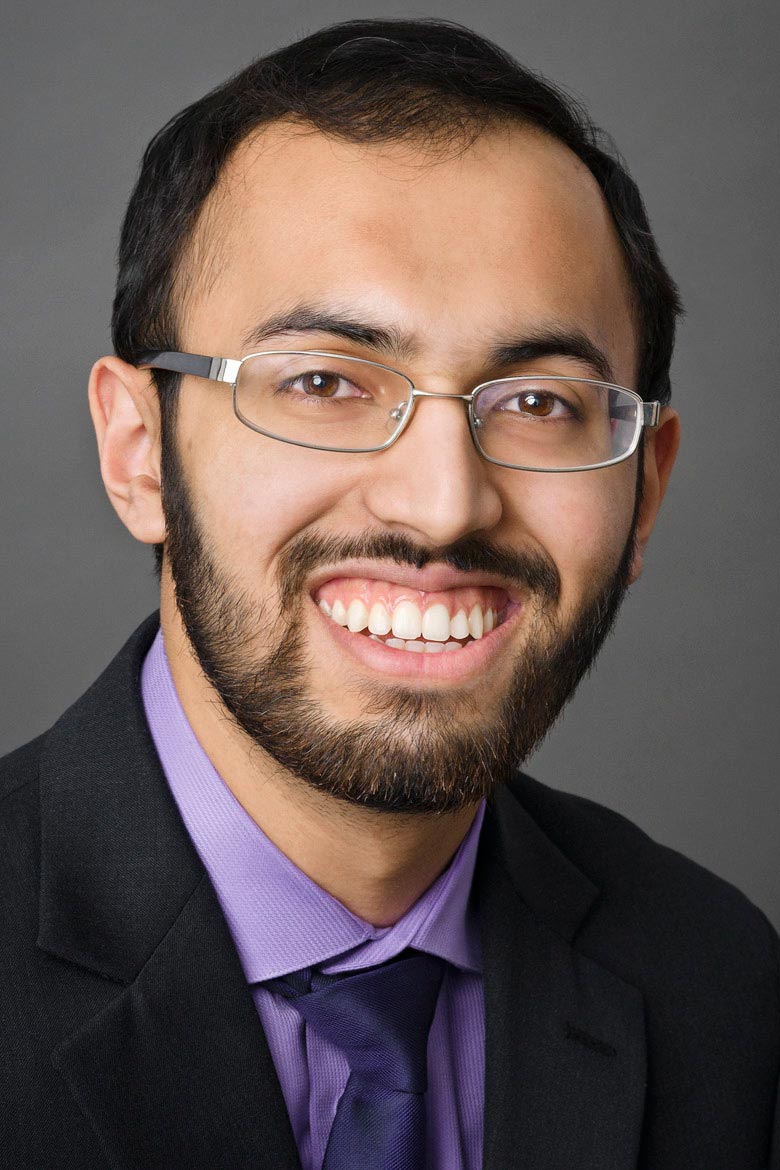
Abubakar Abid (Image credit: Christopher Smith)
Abubakar Abid will use the fellowship to support his PhD studies in electrical engineering at Stanford, where he will build medical devices that can stay in the human body for extended periods of time to provide unique, patient-specific biomedical information that can help diagnose diseases and provide real-time feedback to patients.
Abid grew up in Friendship, Wis., where his parents, both medical doctors, settled after emigrating from Pakistan. Every week, the Abid family drove to Chicago, which has a vibrant Pakistani community, to meet extended family, to spend time in Devon Avenue’s famous “Little Pakistan” and to visit the large mosques in the suburbs.
Abid earned a bachelor’s degree in electrical engineering and computer science in 2015 from the Massachusetts Institute of Technology (MIT) in Boston. At MIT, he developed new kinds of probes to read neural signals and developed a model for lung physiology that can explain distinct features in capnographs of patients with normal and diseased lungs.
Abid is now completing a master’s degree in BioEECS (bioscience in electrical engineering and computer science) at MIT. He is working on building edible electronics that can remain inside the gastrointestinal tract to monitor biomedical signals and provide this information wirelessly to patients and clinicians.
In 2012, Abid co-founded MSA Mentorship, a student-run organization that connects Muslim high school students with academic mentors.
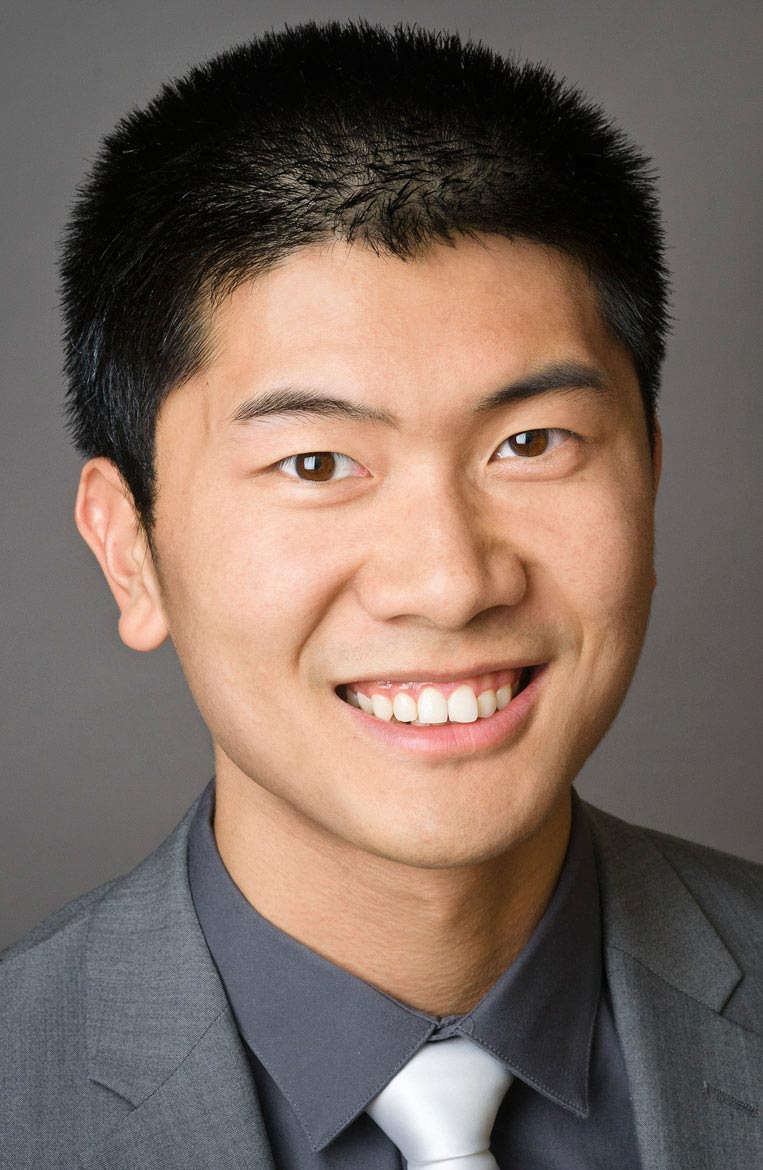
Binbin Chen (Image credit: Christopher Smith)
Binbin Chen will use the fellowship to support his MD and PhD (genetics) studies at Stanford Medical School, where he is developing bioinformatics tools to understand patient responses to immunotherapy.
Chen was born in Fuzhou, a city of more than 7 million people in southeast China. He joined his mother in the United States when he was 18 years old. She had settled in Georgia after fleeing China seven years earlier following her husband’s arrest and imprisonment.
Chen earned a bachelor’s degree in biomedical engineering at the Georgia Institute of Technology in 2013. As a sophomore, he published a first-author paper in The Journal of Translational Medicine. As a senior, he helped organize the first LGBT graduation reception at Georgia Tech, an event covered by a National Public Radio station in Atlanta.
After graduating, Chen spent a year in Johannesburg, South Africa, investigating a bimolecular method to assess drug adherence by HIV patients. While there, he observed the social stigma against HIV patients and those who identified as lesbian, gay, bisexual or transgender.
At Stanford Medical School, Chen is the co-president of LGBT Meds, an activist and social organization dedicated to raising awareness of queer health issues and promoting equal social and political rights for lesbian, gay, bisexual and transgender people. He also volunteers at the Pacific Free Clinic, which is operated by the Medical School for the underserved population in the Bay Area.
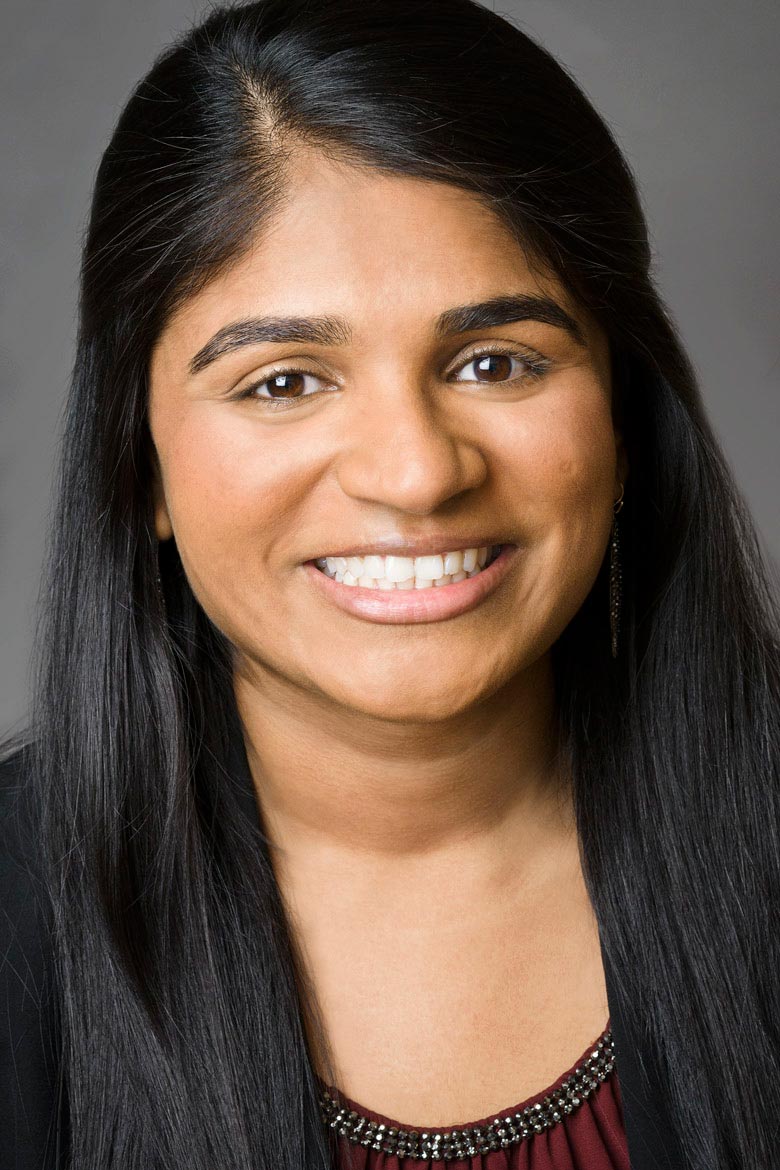
Sharada Jambulapati (Image credit: Christopher Smith)
Sharada Jambulapati, ’12, who was raised in rural Georgia, will use the fellowship to support her legal studies at Boalt School of Law at the University of California, Berkeley.
Jambulapati is the daughter of Indian immigrants who moved to the United States in search of educational opportunities for their children. She developed a commitment to civil rights and racial justice work watching her mother – who worked as a factory seamstress, janitor and nanny – face discrimination due to her accent and appearance.
At Stanford, where Jambulapati earned a bachelor’s degree in international relations in 2012, she pursued her passion for community organizing and activism. She helped high school students with college applications in the Phoenix Scholars program; created awareness on campus about immigrant human rights through the Stanford Immigrant Rights Project; and researched the depiction of immigrants in high school history textbooks with Tomás Jiménez, an associate professor of sociology at Stanford.
As a senior, Stanford’s Haas Center for Public Service awarded Jambulapati a John Gardner Public Service Fellowship to work at the Southern Poverty Law Center in Alabama. She worked as a community advocate for three years at the center, where she investigated civil rights abuses for lawsuits aimed at improving jail conditions for children, the impact of zero tolerance school policies on children and ways to increase school access for undocumented students.
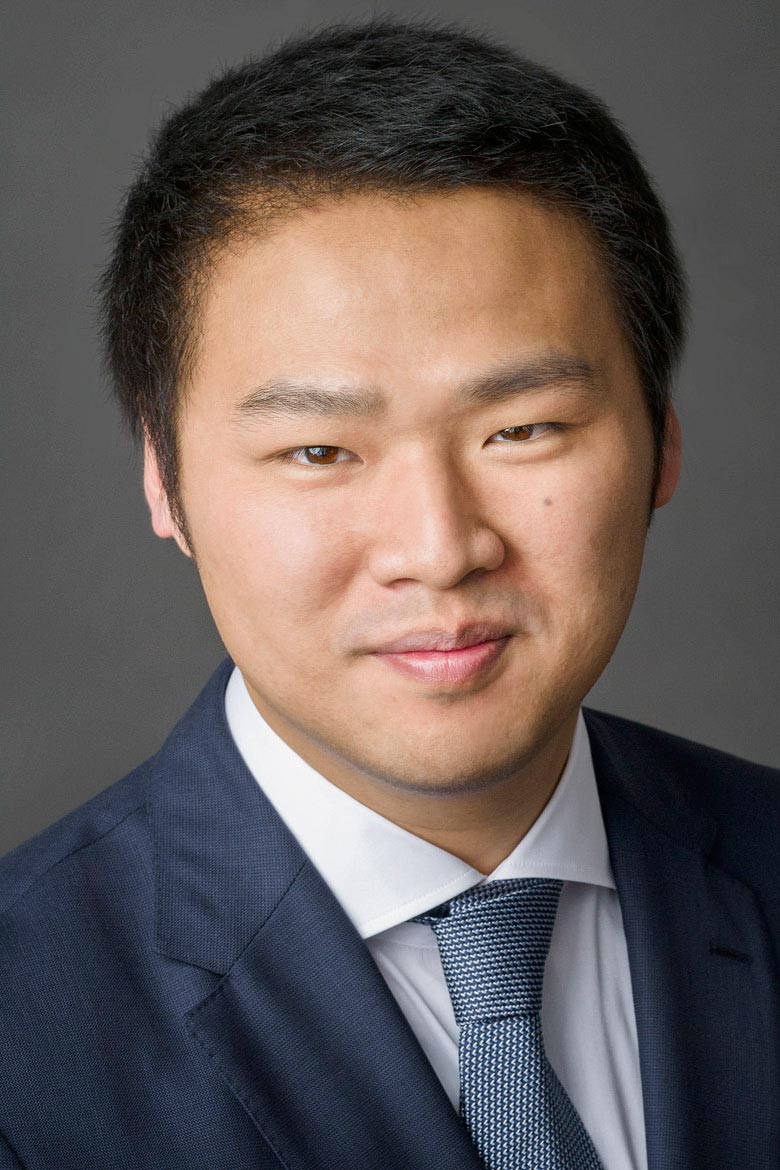
Zihao Jiang (Image credit: Christopher Smith)
Zihao Jiang, who was born and raised in Shaoxing, a coastal city of 5 million people in southeast China, will use the fellowship to support his PhD studies in physics at Stanford.
Jiang was 19 when he arrived in the United States to attend the University of Chicago. He graduated in 2014 with bachelor’s degrees in physics and in mathematics. As an undergraduate, he won several prizes, including the Enrico Fermi Institute’s Sugarman Award, which recognizes excellence in research, and the John Haeseler Lewis Prize, which is awarded to the best graduating undergraduate physics majors.
Currently, Jiang, a second-year physics PhD student at Stanford, is living and working in Switzerland, where he is participating in the ATLAS experiments, one of two major experiments at the Large Hadron Collider at CERN, the European Organization for Nuclear Research. Jiang, who operates the ATLAS detector, mines and studies the massive amounts of physics data that the collider is producing.
Jiang, who is fascinated by particle physics, is devoting himself to answering the fundamental question: What is the world is made of?
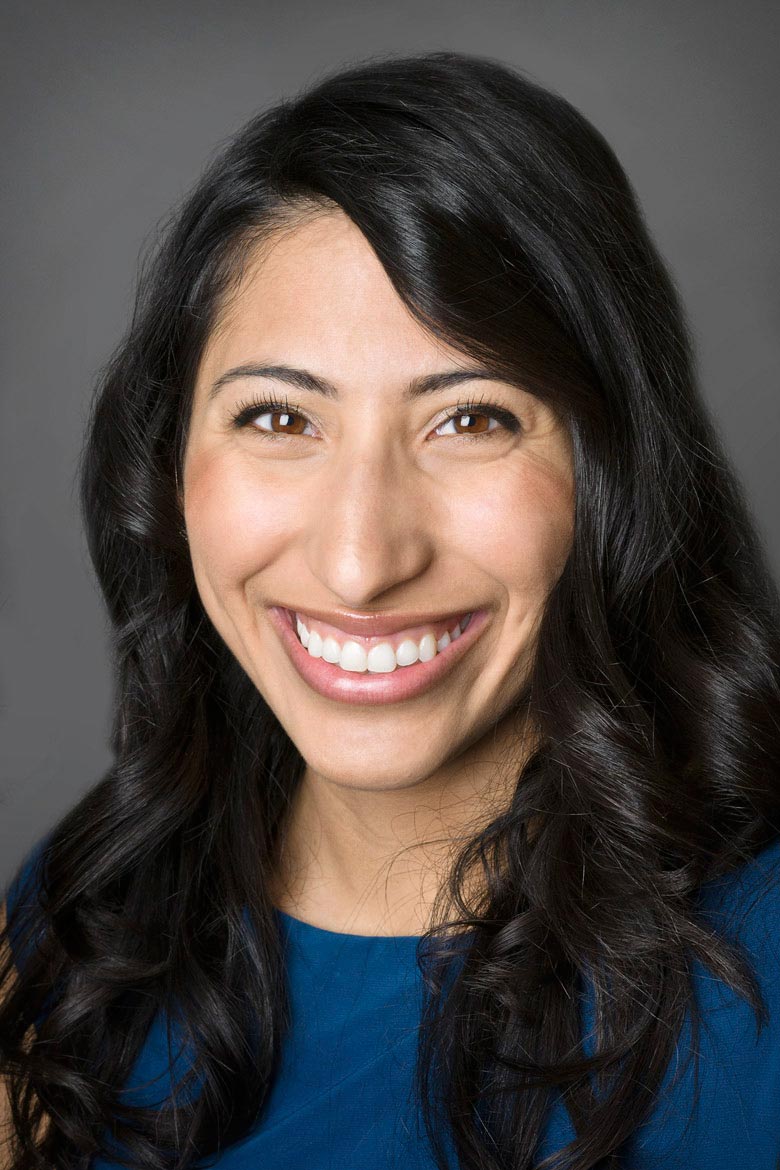
Veronica Manzo (Image credit: Christopher Smith)
Veronica Manzo will use the fellowship to support her studies at Stanford Medical School.
Manzo was born in Riverside, Calif., to Mexican parents. Her family emigrated from small towns in Michoacán and Jalisco to seek opportunity and jobs as farmworkers.
She earned a bachelor’s degree in neurobiology in 2013 at Harvard, where she minored in global health and health policy. At Harvard, she conducted research on glioblastoma multiforme, a deadly brain tumor, and co-authored a paper on the study, “Passenger deletions generate therapeutic vulnerabilities in cancer,” published in Nature in 2012.
After graduating, she worked on research projects at the Dana-Farber Cancer Institute and at the Broad Institute of Harvard and MIT to build her knowledge of genetics. She also volunteered for Global Oncology, a community dedicated to alleviating suffering and providing the highest quality cancer care to people in resource-limited settings.
At Stanford Medical School, she has been a member of the Ami S. Bhatt Lab. Manzo has tailored her coursework to focus on cancer biology and community health.
Last summer, she helped implement key preventive medicine programs at the Ravenswood Family Health Center in East Palo Alto, Calif., which provides health care to all patients, regardless of their ability to pay or immigration status. She has also served as co-chair of the Latino Medical Student Association.
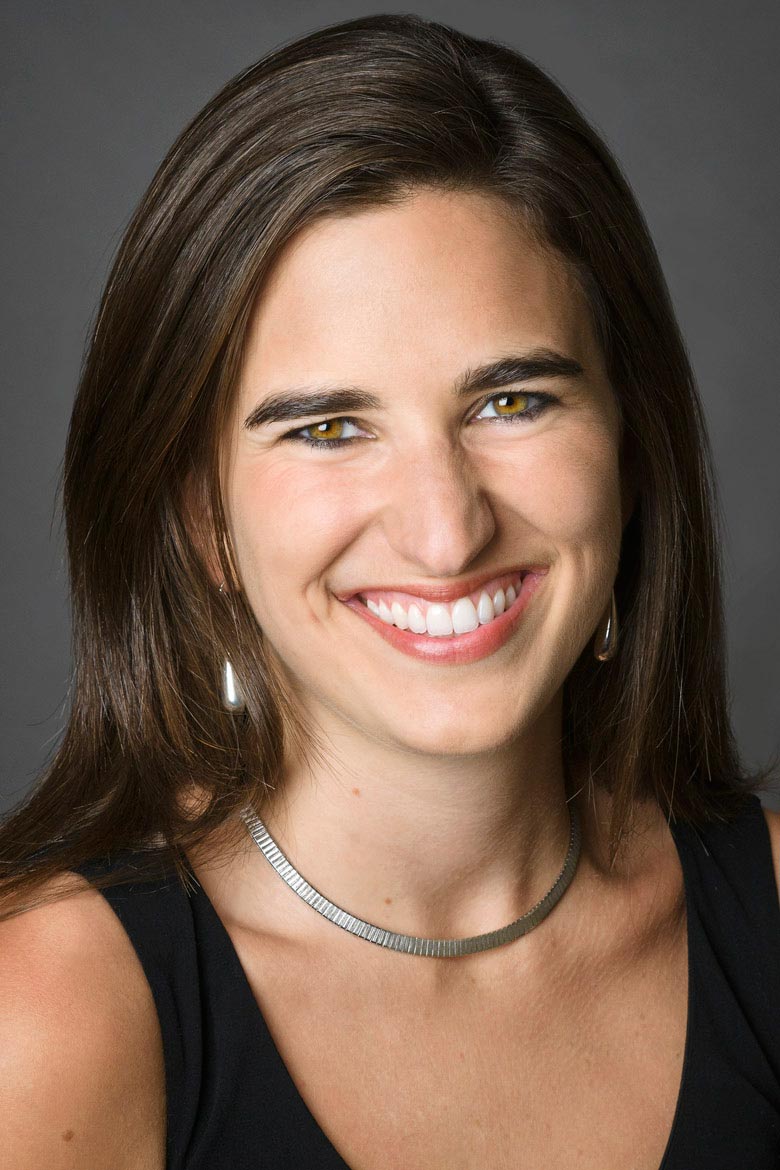
Jenna Nicholas (Image credit: Christopher Smith)
Jenna Nicholas will use the fellowship to support her studies at the Stanford Graduate School of Business, where she is a first-year MBA student.
Nicholas, whose heritage is Western European and Middle Eastern, was born in New York City but spent most of her formative years in London. She earned a bachelor’s degree in international relations with honors at Stanford in 2012.
As an undergraduate, she worked as a research assistant at the Stanford Center for Philanthropy and Civil Society and interned at the Stanford Social Innovation Review.
After graduating, Nicholas worked with Calvert Special Equities, an impact investing fund focused on socially responsible businesses and funds. She was concurrently invited to co-teach a graduate course at Tsinghua University’s School of Economics and Management, Beijing, on creating value through socially responsible investing, business ethics and corporate social responsibility.
Nicholas co-founded Phoenix Global Impact, a consulting firm that specializes in supporting leaders in the field of impact investing. Its aim is to generate measurable, beneficial, social or environmental returns as well as financial returns.
She served as project manager for Divest-Invest Philanthropy and helped the organization’s membership grow to more than 150 foundations. She has researched the potential benefits of social impact, development and green bonds for the World Bank. She is also a fellow at the Toniic Institute, a global network of action-oriented impact investors.
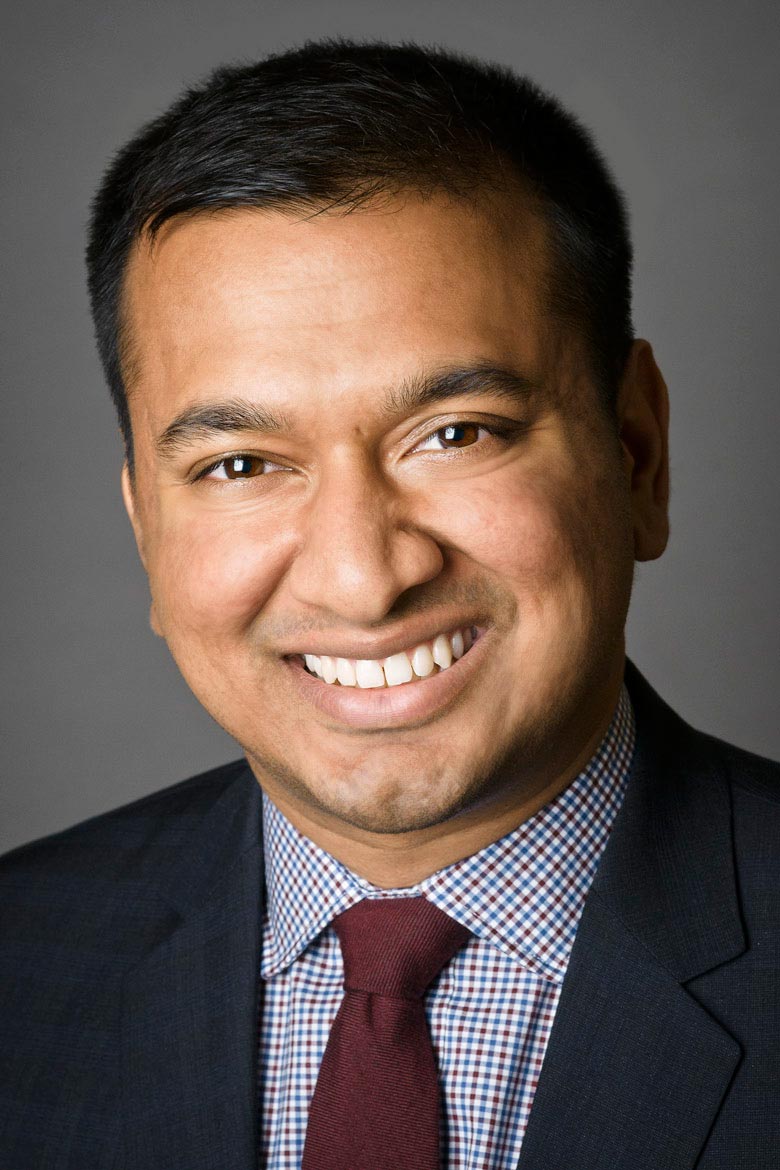
Suhas Rao (Image credit: Christopher Smith)
Suhas Rao will use the fellowship to support his medical studies and his doctoral studies in biomedical science at Stanford Medical School.
Rao, who was born in Massachusetts, is the son of Indian immigrants who came to the United States in the 1980s.
Rao earned a bachelor’s degree in applied mathematics at Harvard College in 2012. As an undergraduate, he worked at the Broad Institute of Harvard and MIT , where he was inspired by the potential of the “genomics revolution” to drive a new age in precision medicine and patient care.
However, while working at the Harvard Square Homeless Shelter, Rao realized that revolutions in health care weren’t particularly useful if they weren’t accessible to those who need them most. His desire to work at the forefront of biomedical research and to translate this research into clinical practice led him to a career as a physician-scientist.
Rao continued his research on the three dimensional structure of the genome at the Broad Institute and the Baylor College of Medicine, resulting in being first co-author of a publication in Cell, “A 3D Map of the Human Genome at Kilobase Resolution Reveals Principles of Chromatin Looping,” and another in the Proceedings of the National Academy of Sciences, “Chromatin Extrusion Explains Key Features of Loop and Domain Formation in Wild-type and Engineered Genomes.”
That work resulted in the highest resolution maps of the 3D genome to date and revealed numerous structural principles of genome folding. It made the national news: on National Public Radio and in Time, Forbes, The Atlantic and Scientific American.
Rao hopes to tackle the fundamental problem of deciphering the information contained in the genome and to translate that into more precise modalities of patient care.